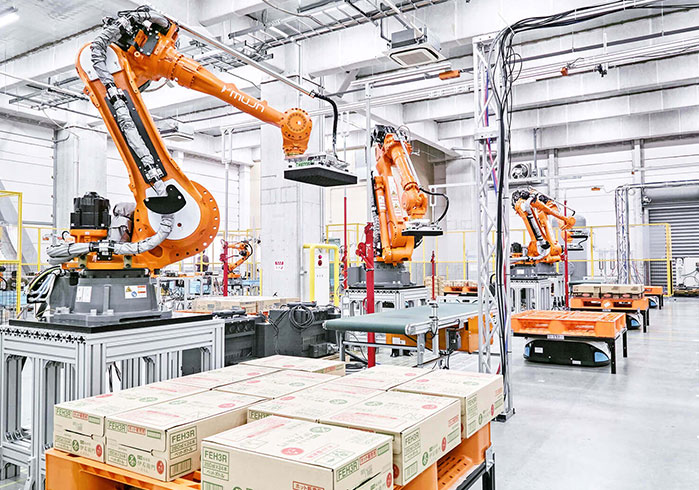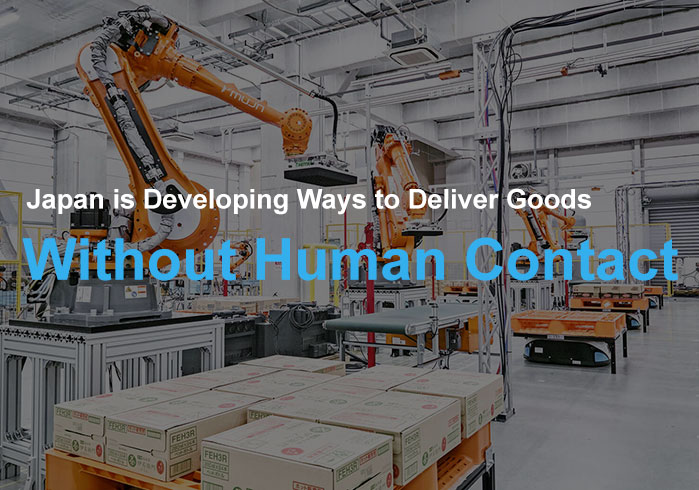
A host of transport service providers, warehouses, and retailers are among the businesses that are taking an increasing interest in developments within the logistics industry. Essentially, they are all looking for the most efficient means of moving products from one place to another. Part of this process is to limit the amount of human contact with the goods that are being transported.
Although such changes are part of the generalized move towards more automation in industry, they are also a matter of necessity. The Coronavirus (COVID-19) pandemic has meant that not only are there fewer opportunities for humans to work but also that businesses have to think of a new world in which human contact is going to be severely restricted. This could help to stem the tide of infections, hence protecting both customers and employees.
Businesses such as the Tsubakimoto Chain Company have reported increased demand for conveyors and sorting services, yet there is a real problem with mobilizing manpower safely and effectively. Startups such as Hacobu have indicated that they will seize any opportunities to boost their online platforms through enhanced services such as information exchange for trucking, more efficient warehousing, and paperless administration. This necessitates and implies a more “human-less” service delivery.
Demand for automation and “humanless” systems
Japan has experienced a particularly acute demand for automation in transportation and storage. This is partly driven by labor shortages and the effects of the Coronavirus on the economy. There is an upsurge in online buying and some have expressed concern about infections during delivery from one human to another. That partly explains why the market for next-generation logistics systems in Japan is set to more than double to 651 billion yen ($6 billion) through 2025, based on data released by Fuji Keizai.
Masafumi Okamoto, division manager at Tsubakimoto (an Osaka-based company), predicts that demand for human-less services will continue to grow. This is partly due to an increased interest in e-Commerce. Even manufacturers are getting increased inquiries about the possibility of producing automated equipment.
Daifuku is an example of old companies that are beginning to embrace new technologies. For example, this 83-year old establishment has experienced a significant rise in its share price; partly because it makes and sells equipment that helps in handling goods. By mid-May, Daifuku Company had a capitalization that was higher than 1 trillion yen.
Analysts such as Toshiharu Morita of SBI Securities posit that companies like Daifuku will lead the way in the “new normal” of the post-COVID era in which human contact is reduced. The visibility and value in both the short and long run are likely to be highly optimistic based on their role in transporting and storing goods with minimal human contact.
Companies that are leading the way
Other companies have also joined the trends in human-less transportation and storage. Others are merely benefitting from new markets that now recognize their transactional and logistical value. Above Robotics is a San Francisco-based startup that offers services to stitch together various autonomous logistics and transportation systems. Using cloud-based software this company engages with shippers, warehouses, and driverless vehicles. They can communicate directly and handle goods with fewer humans in between. It is therefore not surprising that “Above Robotics” has been dealing with new inquiries from companies in Japan, South Korea, and other parts of Asia.
Dirk Beth, a director at “Above Robotics”, sounds very optimistic about the future:
“We’re certainly seeing an acceleration of interest because of COVID,” Beth said. “I don’t think that’s going to slow down even if the COVID situation is solved today, because now what companies are thinking is, ‘when is the next time this is going to happen and people can’t go to work? How do we make sure that our goods get to the end customer?’”
Another important player is Hacobu. This is a logistics-data company that recently teamed up with Hino Motors Ltd. in May to solve issues such as a shortage of drivers. The company has prospered in a business environment within Japan which has been plagued by a chronic insufficiency of drivers. For instance, about 85% of companies surveyed by the Japan Truck Association in 2019 reported staff shortages and associated logistical bottlenecks.
Despite this interest in human-less operations, it is important to note that the human element is still essential and will continue to play some role. In this case, businesses will have to take steps to avoid transmission of the COVID-19 pathogen whilst simultaneously meeting their operational needs. Takeshi Kitaura, an analyst at Bloomberg Intelligence warns against complacency which could limit shipments and sales opportunities.
Because of increased incentives for automation, many providers of automation equipment will see an increase in demand for their services. The more traditional providers, that offer more human-to-human contact, will see a decline in their market. That means that companies such as Hacobu and Daifuku have to strategically realign themselves to a new virtual delivery system, with severely restricted human contact.
What shippers need to know
Many big retailers in Japan are moving towards increased automation. That means that virtually everyone in the supply chain has to follow suit. Rakuten Inc. Chief Executive Officer Hiroshi Mikitani stated on the 13th of May 2020 that his online marketplace is automating its logistics and installing new machines to reduce manual labor. Tadashi Yanai of Fast Retailing Co. also said the maker of Uniqlo clothing is actively investing in logistics and its supply chain. These are examples of companies that are in the process of transitioning and their business partners have to do the same.
Mujin Inc. is an example of a business that has heeded this call for new solutions. This company makes industrial robot controllers and has reported increased interest in its solutions. Their spokesperson, Yuzuki Ishihara, goes as far as saying that automated logistics will be the new way of dealing with emergencies. Similarly, ZMP Inc. (specializing in driverless carts and forklifts for warehouses) is benefitting from the boom in person-less services. Its CEO, Hisashi Taniguchi, said the number of clients using its machines to support logistics will increase by 150 to 200 this year. The company is now planning to list on the Tokyo Stock Exchange, after postponing it in 2016.
Wrapping Up
Automation is a reality for many businesses in Japan. Even the government is pushing this as a means of reducing infections from pandemics such as COVID-19. Businesses are therefore called upon to embrace the use of new technologies like big data or artificial intelligence. This will make it easier to manage customer demands and operational fleets. The government has been very proactive in this. The Ministry of Land, Infrastructure, Transport, and Tourism released a policy paper supporting automation. The agency called for the use of drones in less populated and mountainous areas. This is a cue for businesses to take advantage of this opportunity.


